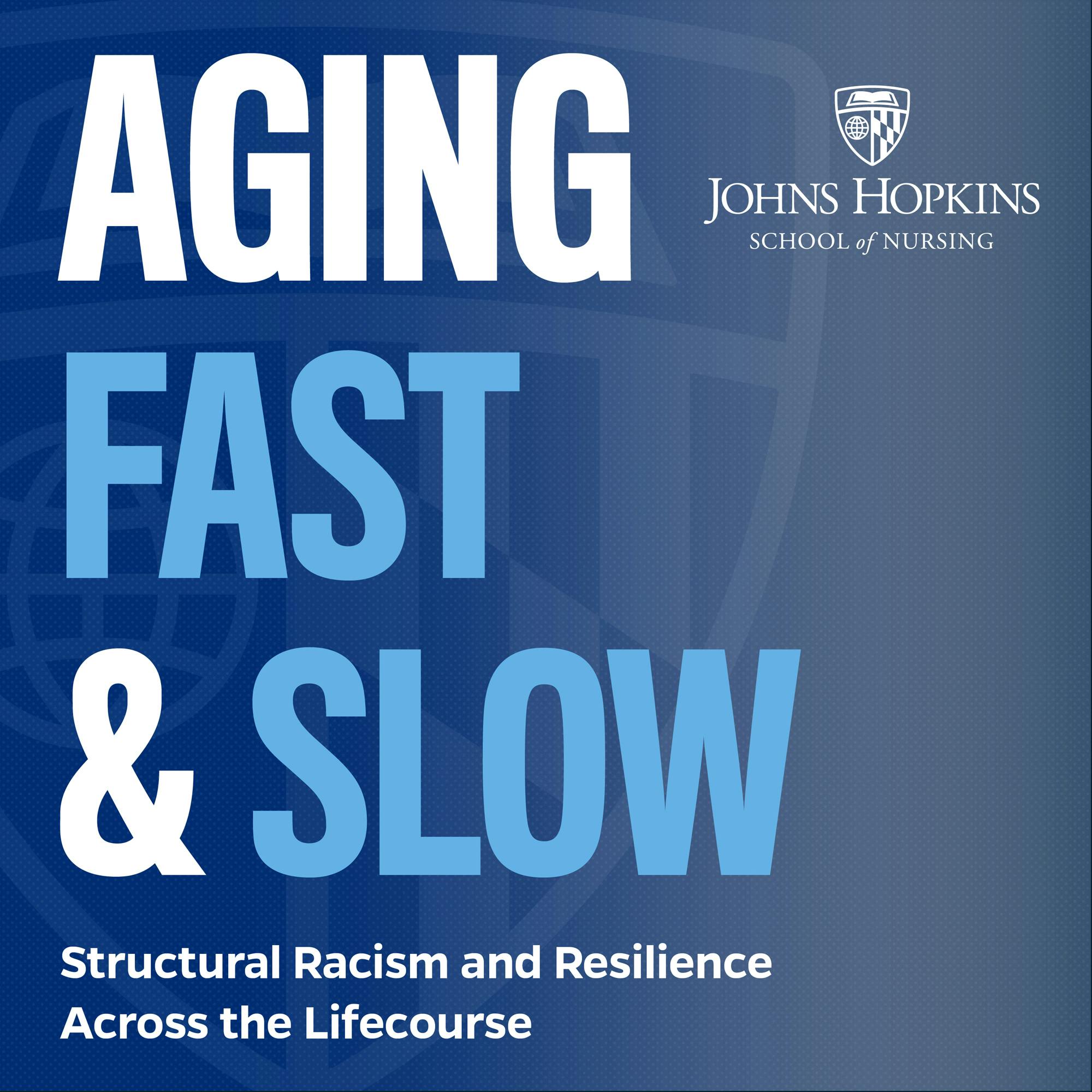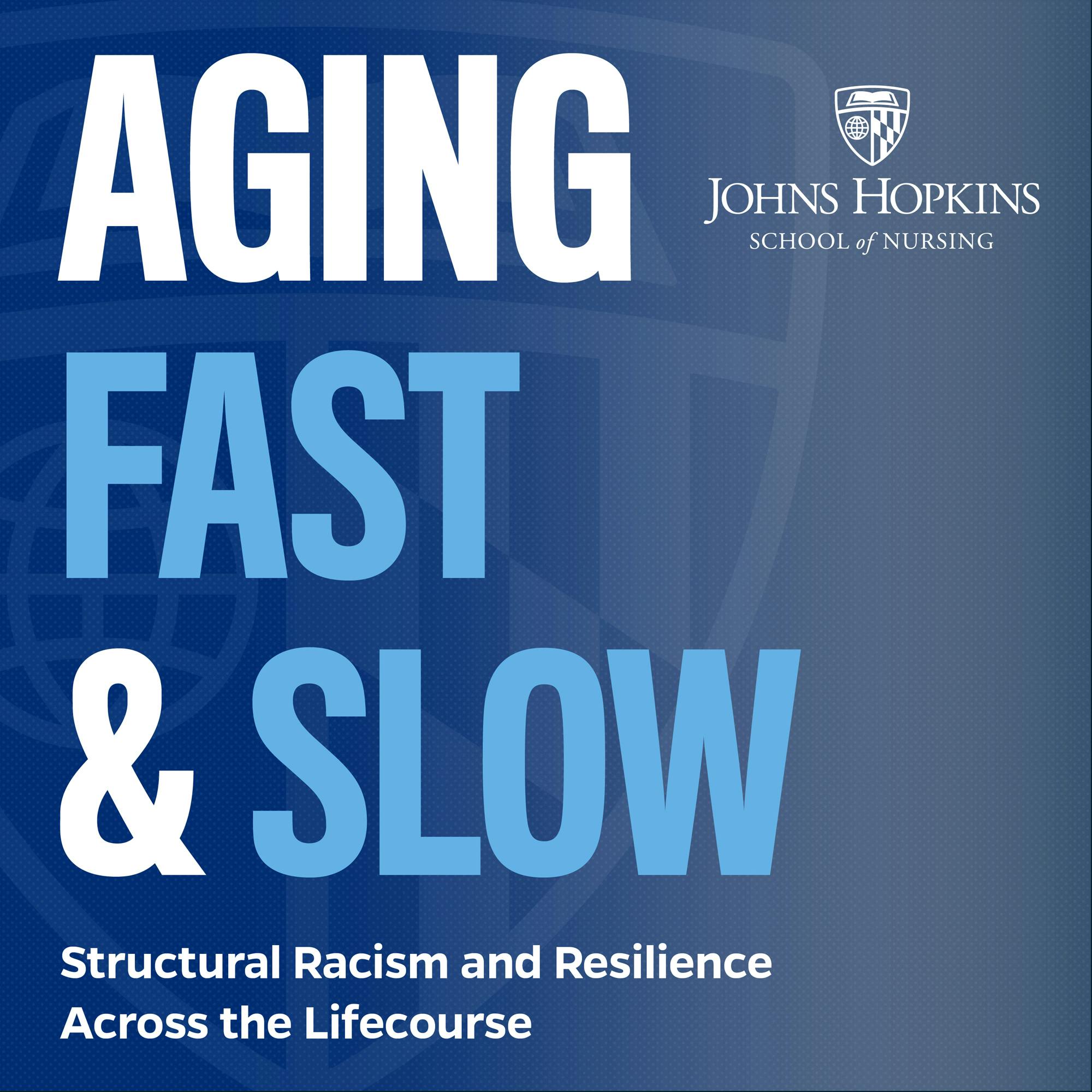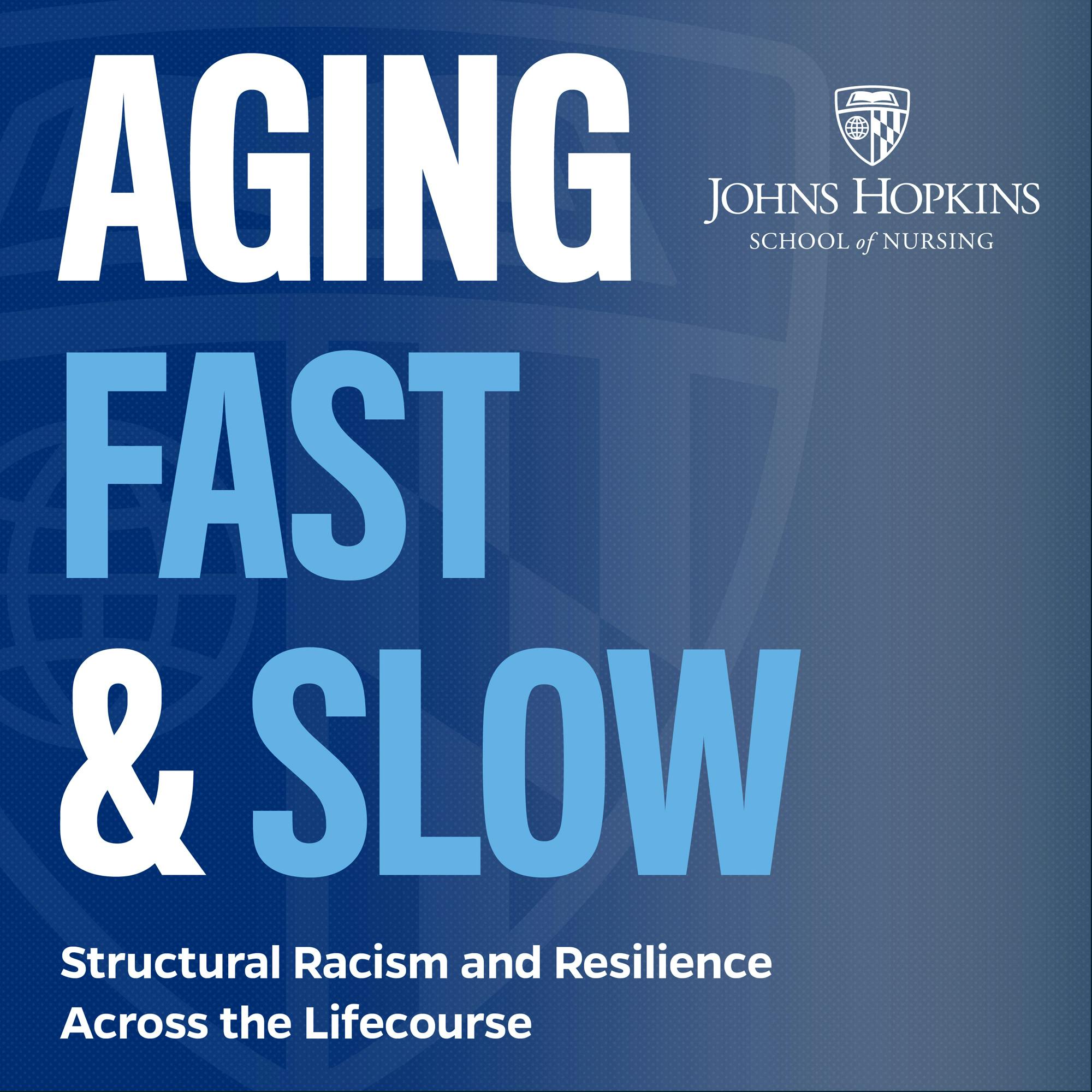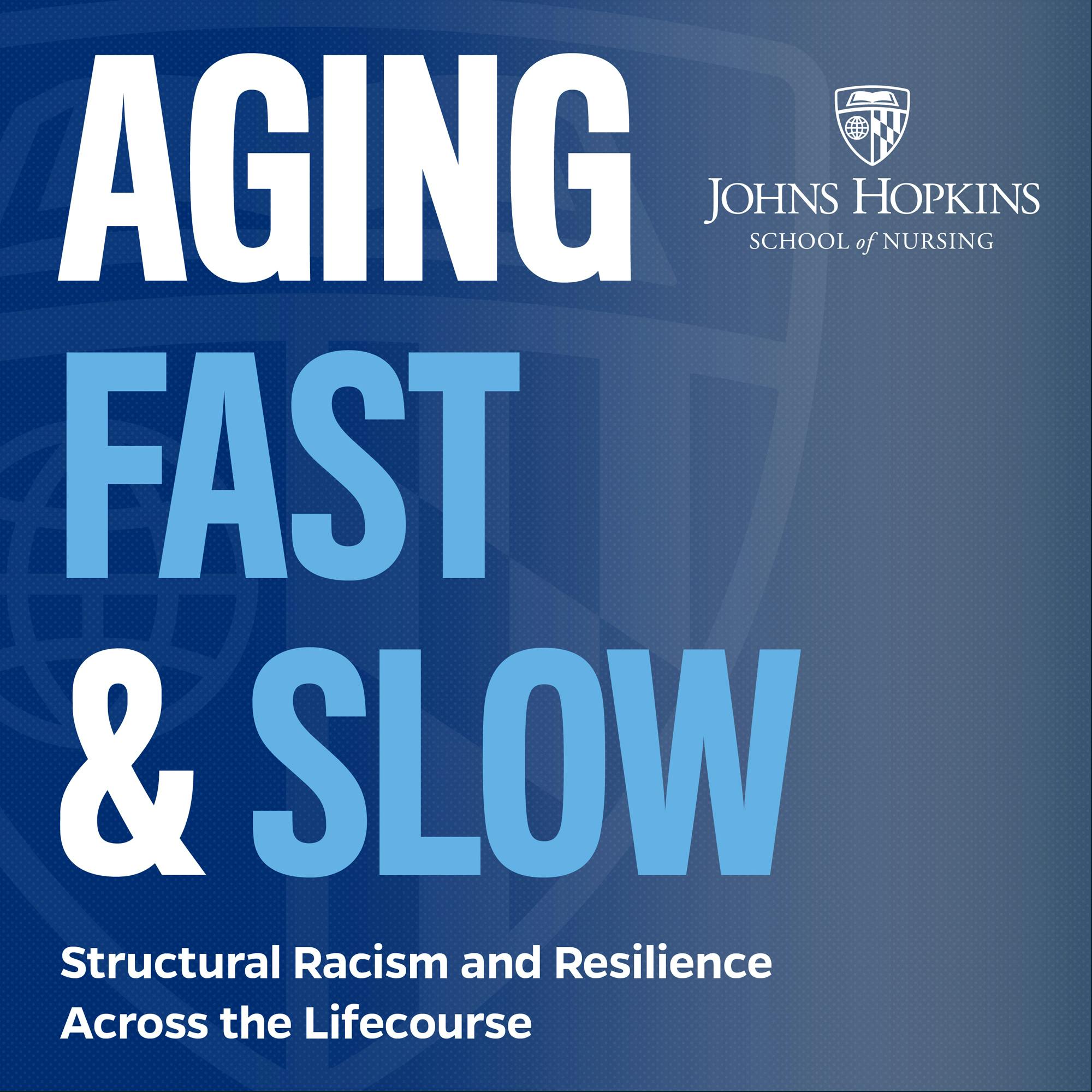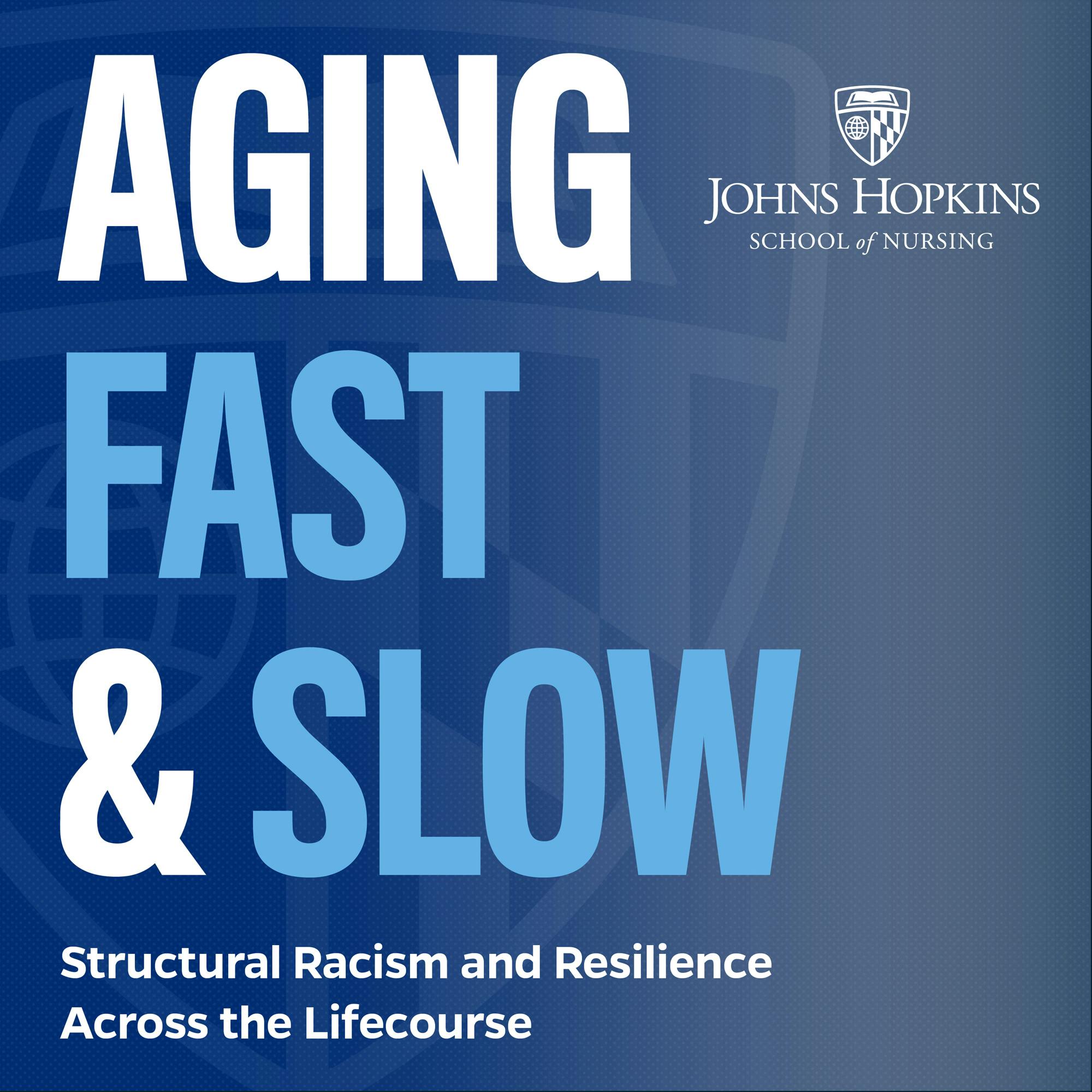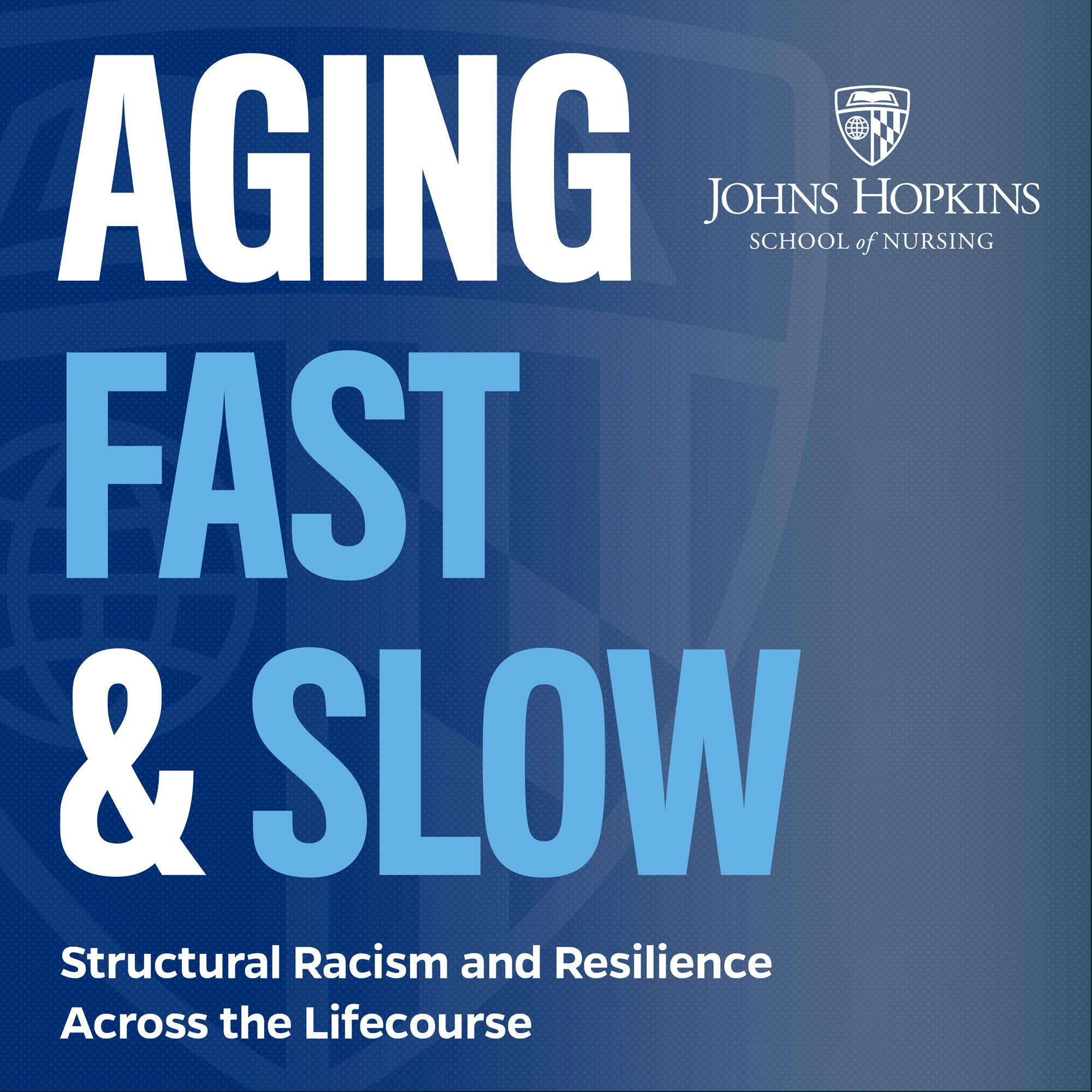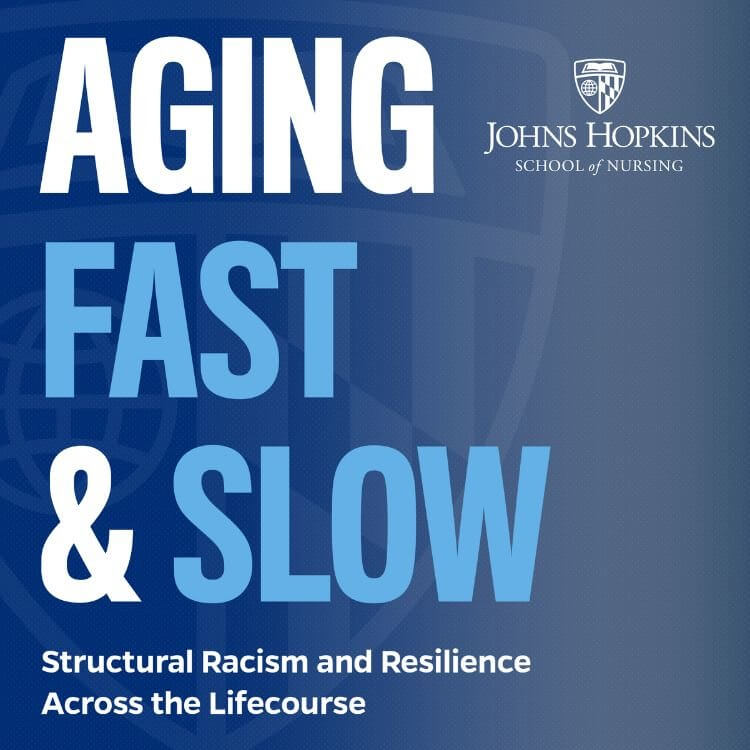
Aging Fast & Slow
Conversations on Structural Racism and Resilience across the Lifecourse
Resilient Roots: Indigenous Health Equity
Join us for this episode of Aging Fast & Slow as we explore the structural resilience of Indigenous Peoples amidst systemic inequities. Dr. Allison Kelliher, Associate Faculty for Indigenous Knowledge and Practice Systems at Johns Hopkins School of Nursing, sheds light on pathways to positive change and health equity. With her unique background as an Alaska Native Traditional Healer and Integrative Physician, Dr. Kelliher offers invaluable insights into promoting resilience and well-being among Indigenous communities.
References
United Nations Economic and Social Council. Indigenous determinants of health in the 2030 Agenda for Sustainable Development. April 2023.
Kelliher, A et al. Indigenous determinants of health: a unified call for progress. The Lancet. June 21, 2023.
Kelliher, A et al. Status of Maternal Cardiovascular Health in American Indian and Alaska Native Individuals: A Scientific Statement From the American Heart Association. Circulation: Cardiovascular Quality and Outcomes. June 2023.
May 1, 2024
Policy Pathways to Community Resilience
Policies are pivotal for shaping the structural resilience of communities, influencing their ability to navigate and overcome adversity. In this episode, we are joined by Dr. Vincent Guilamo-Ramos, Director of The Institute for Policy Solutions at the Johns Hopkins School of Nursing, to explore how policies, social determinants of health, and structural resilience intersect to shape community well-being and examine how thoughtful policy frameworks can either bolster or hinder a community's ability to overcome adversity.
References
Guilamo-Ramos V et al. Nurse-led approaches to address social determinants of health and advance health equity: A new framework and its implications. Nursing Outlook. November/December 2023.
Guilamo-Ramos V et al. Paternal Communication and Sexual Health Clinic Visits Among Latino and Black Adolescent Males With Resident and Nonresident Fathers. Journal of Adolescent Health. September 2023.
Guilamo-Ramos V et al. Community-engaged Mpox vaccination provides lessons for equitable health care in the United States. Nature Medicine. September 2023.
April 2, 2024
Building Resilient Communities
Ongoing research is shedding light on the complex dimensions of structural resilience. In this episode, we are joined by Dr. Kamila Alexander, an Associate Professor at Johns Hopkins School of Nursing. Dr. Alexander's research focuses on understanding how socio-structural factors impact health outcomes of marginalized youth, particularly regarding trauma, violence, and sexual, mental, and reproductive health. She shares insights from her work on how communities can overcome challenges, utilize resources, and promote sustainable development despite facing adversity.
References
Alexander KA et al. Intervention Approaches to Address Intimate Partner Violence and HIV: a Scoping Review of Recent Research. Current HIV/AIDS Reports. September 2023.
Alexander KA et al. Contraceptive Use Among Women Experiencing Intimate Partner Violence and Reproductive Coercion: The Moderating Role of PTSD and Depression. Violence Against Women. February 2023.
Alexander KA et al. Having a Child Meant I had a Real Life: Reproductive Coercion and Childbearing Motivations Among Young Black Men Living in Baltimore. Journal of Interpersonal Violence. June 2019.
Alexander KA, Szanton SL, et al. Life Space and Activity Space Measurement: Making ‘Room’ for Structural Racism. The Gerontogist. November 2023.
March 4, 2024
Stronger Together: Resilience and Civic Action
This episode delves into the powerful connection between resilience and civic engagement that enables underserved communities to not just withstand systemic challenges but to emerge stronger. Our guest for this conversation is Dr. Hahrie Han, the Director of the SNF Agora Institute and a Professor of Political Science at Johns Hopkins University. Dr. Han explores how grassroots organizations transform community engagement into political influence. Join us as we explore the juncture of societal structures, grassroots movements, and the enduring resilience of communities striving for a more equitable future.
References
Han H, Kim, JY, de Vries, M. The unequal landscape of civic opportunity in America. Nature Human Behavior. November 2023.
Han H, McKenna E, Oyakawa M. Prisms of the People. University of Chicago Press. 2021.
February 5, 2024
Art, Mutualism, and Structural Resilience
Grandmothers, coaches, school nurses, barbers — what are the roles of non-traditional community leaders like these and what critical roles can they play in engaging historically divested communities and isolated individuals? How can art, imagination, and collective action model best practices for more equitable structures? We are joined by Marisa Morán Jahn, an artist whose work with low-wage workers, new immigrant families, and public housing residents has been described by the Chicago Tribune as exploring “civic spaces and the radical art of play.” She is Director of Integrated Design at Parsons/The New School and a Senior Researcher at MIT. We are also joined by Micah Campbell-Smith, a community developer who launched Black Pittsburgh Matters and has designed policies and trainings with New York’s Community Preservation Corporation and Pittsburgh’s Urban Redevelopment Authority.
January 3, 2024
Aging Fast & Slow Season 4 Trailer
For the past three seasons, we've delved deep into the critical issue of structural racism, shedding light on its complex web of historical, political, and social factors that contribute to its persistence. Another critical aspect of this topic pertains to the resilience and fortitude cultivated within communities in the face of structural racism. Our upcoming podcast season will feature scientists, policy experts, and innovators to shed light on the importance of building personal and communal resilience as a means of empowerment and healing in the face of systemic injustices.
December 15, 2023
Measuring the Immeasurable
The complex aspects of structural racism—encompassing policies, practices, and cultural biases—make it difficult to measure, often requiring innovative methods that account for historical and contemporary disparities. In this episode, we speak with Dr. Karen Bandeen-Roche, a distinguished biostatistician who has mastered the art of quantifying the unquantifiable. Dr. Bandeen-Roche guides us through her expertise in measuring elusive variables such as frailty and how this skill could illuminate aspects of healthcare's structural racism.
References
Bandeen-Roche K, Gross A L, et al. Principles and Issues for Physical Frailty Measurement and Its Clinical Application. The Gerontological Society of America. July 2019.
Bandeen-Roche K, Xue Q-L, et al. Phenotype of Frailty: Characterization in the Women’s Health and Aging Studies. Journal of Gerontology. March 2006.
December 4, 2023
Shaping a Fair Health Landscape
In the realm of addressing health disparities and fostering health equity, the intricacies of socioeconomic factors and their profound influence cannot be understated. In this podcast episode, we welcome Dr. Laura Samuel, an Assistant Professor at the Johns Hopkins School of Nursing, whose expertise in addressing socioeconomic disparities offers profound insights that contribute to the broader dialogue on health equity. Tune in as we explore the interplay of socioeconomic factors that shape health outcomes, and discover the transformative potential of this work in reshaping the landscape of health disparities.
References
Samuel L, Dwivedi P, Hladek M, Cudjoe T, Drazich B, Li Q, Szanton S. The effect of COVID-19 pandemic-related financial challenges on mental health and well-being among US older adults. Journal of the American Geriatric Society. October 2021.
Samuel L, Crews D, Swenor B, Szanton S, et al. Supplemental Nutrition Assistance Program Access and Racial Disparities in Food Insecurity. JAMA Network Open. June 2023.
Samuel L, Wright R, Taylor J, Lavigne L, Szanton S. Social Norms About Handling Financial Challenges in Relation to Health-Protective Capacity Among Low-Income Older Adults. The Gerontologist, May 2022.
November 2, 2023
Aging Fast & Slow
Tune in as we engage cutting-edge scientists, policy experts, and thought leaders to better understand structural discrimination, resilience, and the impact on aging across the lifecourse. The podcast series features conversations with experts to explore the health disparities caused by structural discrimination and discuss programs and policies that aim to move the health equity needle.
Team
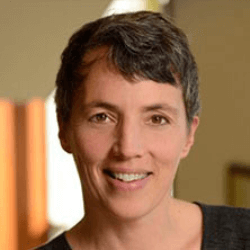
Sarah L. Szanton, PhD, ANP, FAAN
Sarah L. Szanton, PhD, ANP, FAAN researches ways to advance health equity through policy-relevant measurement and intervention. Szanton is the Dean and Health Equity and Social Justice Endowed Professor at the Johns Hopkins School of Nursing. Her three streams of research are on racial discrimination and resilience, developing ways for older adults to live independently as they age, and policy solutions for financial strain. She has received numerous honors for her work, including an NIH Pioneer award, the Heinz award and National Academy of Medicine membership.
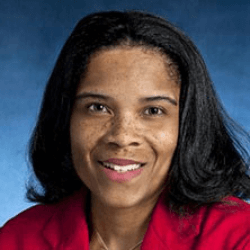
Deidra Crews, MD, ScM, FASN, FACP
Deidra Crews, MD, ScM, FASN, MACP researches ways to mitigate disparities in the care and outcomes of chronic kidney disease. Crews is a Professor of Medicine at the Johns Hopkins University School of Medicine and holds faculty appointments with the Center on Aging and Health and Center for Health Equity, where she is Deputy Director. Her research program aims to advance equity in kidney disease and hypertension outcomes by focusing on social drivers of health inequities. An elected member of the American Society for Clinical Investigation, Dr. Crews has received numerous awards for her research contributions, including the 2018 Johns Hopkins University President’s Frontier Award given to a faculty scholar on the cusp of transforming their field.
